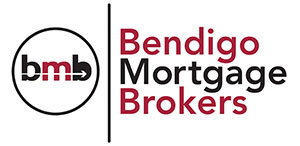A frequently heard assumption is that it is harder to get finance when you are self-employed, but this need not be the case! By using a mortgage broker like us, we will do all the work for you, and you just need to have your most recent tax return completed and assessed by the Australian Taxation Office.
There are a few more things to be aware of, but we will do the hard work!
Most banks will accept applicants with self-employed income, but some will have different document requirements than others. You will first need to have your Australian Business Number (ABN) registered for 2 years and have two years’ worth of tax returns completed, although a few banks will accept only one year’s tax returns. Banks will also want to see that your Business Activity Statements (BAS) are up to date and that you have no outstanding tax debts; if this is not the case, don’t despair, but it will make things harder for you to get a loan through.
When a bank is assessing self-employed income, they compare two years of financials; however, if there is a significant increase in the profit from the previous year, some lenders will only use the most recent financial year’s tax. Some banks will only ask for your Notice of Assessment (NOA) to assess your income, whilst others require full financials. We can help you determine which bank is better for your self-employed income to allow you to borrow money and meet your circumstances. Every self-employed person is different, so in most cases, we can find a lender to suit your circumstances, but if we can’t, then we will give you a plan so that you can obtain finance once you’ve met these hurdles.
You also will get assessed differently if you run a company and pay yourself a weekly or fortnightly wage with pay slips issued. Some lenders will treat you as a Pay As You Go (PAYG) employee instead of Self Employed, which means they do not need to see your tax return! This means that you can service the loan based on your wage only and that we don’t need the profit figures to help boost your borrowing ability. This also means that the lender doesn’t take into account any business debts that you have as the undertaking is that the business can look after these payments and they are not attributed to you personally.
Whilst the banks will look at your profit figures, there is also the ability for self-employed income to include addbacks, such as depreciation, interest and any significant one-off expenses. This can help to increase your revenue and may result in an increase in your borrowing power! For example, you may have purchased some equipment in the past year, and these have been fully depreciated; in most cases, this can be added back on top of your profit. Another example may be that you’ve completed repairs to your business premises or spent money on establishing a new arm of your business; these can be considered one-off expenses that a lender may be able to consider adding back to your profit.
Ther only difference between getting a home loan being self-employed or PAYG employee, is just the assessment of income, which is assessed through your financial statements or pay slips.
We can help to find the best mortgage product for you, which is tailored to your income circumstances and meets your financial needs and goals! Contact us for more information or to book an appointment to learn more!.


